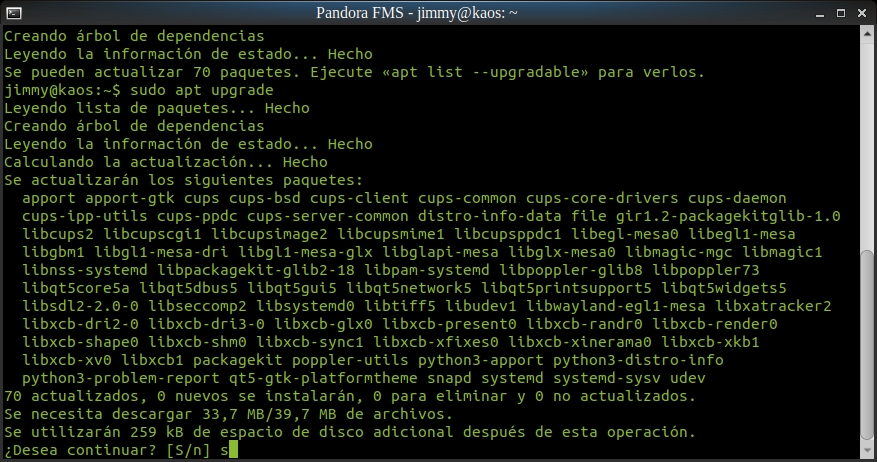

6 binary and the corresponding pip: RUN apt-get.
#Sudo apt upgrade update#
sudo apt-get update > /dev/null sudo password for oli. Thats the -with-new-pkgs option to apt-get enabled by default. py install, but that script no longer Installer Python 3 sur MacOS. Things outputted on stderr will still show in the console. Not saying it's something that never should be done, only that it should only ever be done consciously and with the knowledge of what that entails. Its not exactly what you had in mind, Im sure, but it sure as hell works :) In short, just whack > /dev/null on the end of any command where you want to redirect all the stdout into nothingness. A stable foundation is more important to me than bleeding edge software updates but that's a decision every user/admin needs to make for themselves and not have accidentally made for them by blindly or naively copy-pasting a command like the one you posted above. I just recently installed Ubuntu 12.04 on my laptop, dual booting it alongside Windows 7. This command keeps your current release up-to-date. apt full-upgrade does not update to a new major release of Raspbian. Note: The apt full-upgrade and apt-get distro-update command perform the same function. And hence you use sudo with both commands. I have read almost a dozen apt-get update questions, most from, with 'failed to fetch' errors and tried the solutions answered there. To upgrade all packages on your Raspberry Pi, enter this command: sudo apt full-upgrade. Since these are administrative commands, you need to run them as root. Many people (myself included) will jump from LTS to LTS skipping the in-between releases just to avoid the potential headaches of untested or day 1 issues. If it helps you remember: apt update: updates the package cache (to know which package versions can be installed or upgraded) apt upgrade: upgrades packages to the new version.
#Sudo apt upgrade install#
This might or might not be something the user actually desires depending on what the install is, what software or services they're running and what they want to do with it generally. If dist, performs an apt-get dist-upgrade.

The indexes of available packages are fetched from the location (s) specified in /etc/apt/sources.list. update update is used to resynchronize the package index files from their sources. APT package handling utility - command-line interface. Unattended-upgrades configured for security fixes is a good idea to set up on most installations and/or semi-frequent apt update & apt upgrade no question, I was just warning about dist-upgrade specifically which could for example move somebody from an LTS install to whatever the latest release is. Update the apt cache if it is older than the cachevalidtime. sudo (8) apt-get (8) update & sudo (8) apt-get (8) upgrade.


 0 kommentar(er)
0 kommentar(er)
